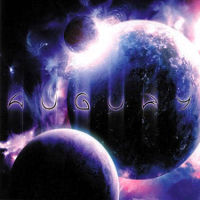Every Friday, The Metal Examiner delves metal’s endless depths to present the genre’s most important and exciting albums.
 Arkan: Salam (Season of Mist, 4/18/11)
Arkan: Salam (Season of Mist, 4/18/11)
Arkan: “Origins”
[audio:http://alarm-magazine.com/wp-content/uploads/2011/05/Arkan-Origins.mp3|titles=Arkan, “Origins”]Despite some great successes, aspirations to incorporate “world” music into metal has also managed to sink countless bands along the way. Ambition and intention aside, most efforts came off as gimmicky or, even worse, just plain silly.
French melodic-death-metal outfit Arkan showed that it was the real deal with its 2008 debut, Hilal, by delivering on the promise of a more Eastern brand of metal — one not just splashed with Arabian and Occidental influences but fully fused with them. Whereas some bands merely branch out into Eastern sounds, Arkan emerges with fully planted roots. Hilal was not perfect, but the follow-up, Salam (Arabic for “peace”), picks up where its predecessor left off, smoothing out what rough edges existed and pushing the band’s sound to its limit.

















 Theologian
Theologian




